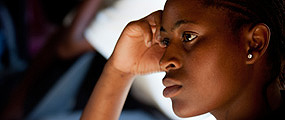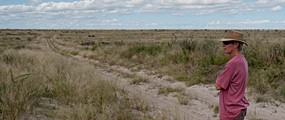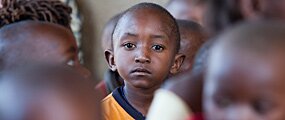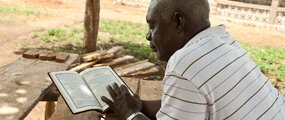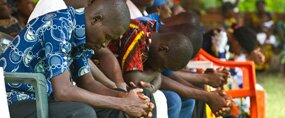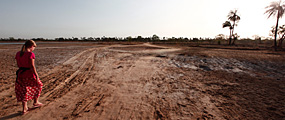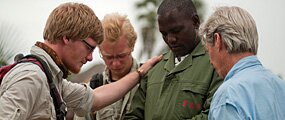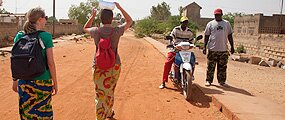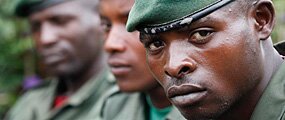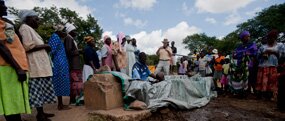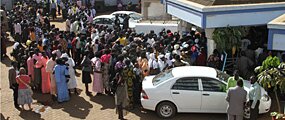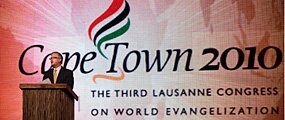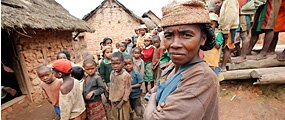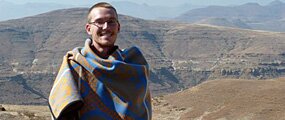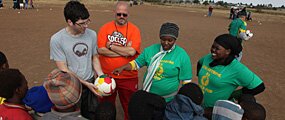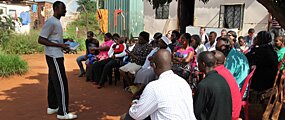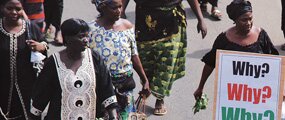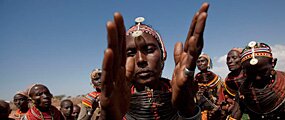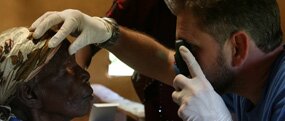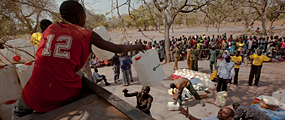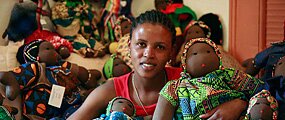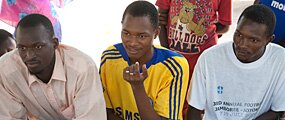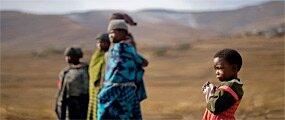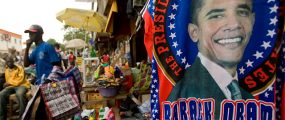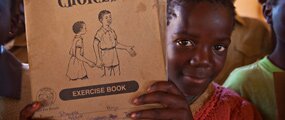More Than History
African Americans have a strong and proud history in international missions. But in the last century that’s often what it’s been – history.
“For many, the whole international scene does not seem to be a priority, and I think that has been a big barrier for African Americans,” said IMB missionary Troy Lewis. “(The church) is not applying Acts 1:8 – going to Jerusalem, Judea and Samaria and to the ends of the earth.”
 Lewis, along with wife Tracey and sons Troy, 15, and Trent, 12, serve in Zambia, where they moved seven years ago. Lewis networks with aid organizations, providing community development programs from marriage enrichment to HIV/AIDS home care training.
Lewis, along with wife Tracey and sons Troy, 15, and Trent, 12, serve in Zambia, where they moved seven years ago. Lewis networks with aid organizations, providing community development programs from marriage enrichment to HIV/AIDS home care training.
A major reason some African Americans have not prioritized overseas missions, Lewis explained, is because they have focused on domestic issues – slavery, civil rights, poverty, crime.
“It allows (African Americans) to say, ‘We have so many problems here, we can’t really look other places. We need to focus here,’” he said.
While such domestic issues are legitimate, there are equally important concerns around the world, as Lewis discovered on a short-term trip to Africa where he saw a need to help those living with HIV/AIDS under a depth of poverty unseen in the United States.
During his college and seminary years, he worked in inner cities, helping establish urban ministries. It “reawakened a desire to work in a Third World country,” Lewis said. “Domestic is important, but it’s a both/and.”
Lewis believes most African American Christians have overlooked the important roles they once served in overseas missions work.
“We have a history of missions,” Lewis said.
He’s right.
Thought to be the first American missionary, George Liele served in Jamaica starting in 1784.
Lott Carey was one of the first American missionaries to Africa in 1821, serving in both Sierra Leone and Liberia.
For modern missions, Betsy Stockton is the first recognized single woman missionary. She went in 1823 to Hawaii.
In 1875, Reverend William W. Colley, one of the founders of the Baptist Foreign Mission Convention, served in western Africa.
For more than 100 years African Americans had a “who’s who” list of courageous missionaries, but sometime in the early 1900s that stopped. Why?
Some theorize that recruiters worked in places where few, if any, blacks were present. Others think that with more white people willing to go with the introduction of medicines to fight diseases like malaria, African Americans thought they were not needed. Some agencies dissuaded or even prohibited African Americans from serving. Then a lack of funding from black churches decreased the support for many who wanted to go. So, they stayed home.
Some of these theories still hold true today.
Currently around 50 African Americans serve through IMB as missionaries, according to David Cornelius, Missional Church Strategist for African Americans.
Only 300 or so African American missionaries are working worldwide, according to Reconciliation Ministries Network, Inc., an organization that mobilizes the African American church for global missions.
Lewis strongly feels that the African American church as a whole is missing out on the blessing to minister cross-culturally. Working alongside Lewis in Zambia has challenged members of his home church, Mt. Hebron Baptist Church in Garland, Texas, to get involved in outreach globally and locally.
Another African American who’s been impacted by mission work in Africa is Willie McLaurin, leadership specialist for the Tennessee Baptist Convention. A trip to Burkina Faso a few years ago opened his eyes and heart to the possibilities of impact internationally.
McLaurin felt a difference between praying for people groups while in the United States and praying for the people groups as he was walking through their villages.
“So many times we talk about needs and we have conversation about various issues, but until one is actually on site on the mission field and is able to have an encounter with people in their environment one will never know how real people are; how sensitive they are; and how lost they are,” McLaurin said.
Cornelius believes God uniquely equips African Americans to change the world because of their life experiences and history.
“Could it be that the journey of African Americans from the days of their being captured in Africa and shipped throughout the world to be slaves to this day has served to equip them uniquely to be servants under God’s direction today?” Cornelius asks.




